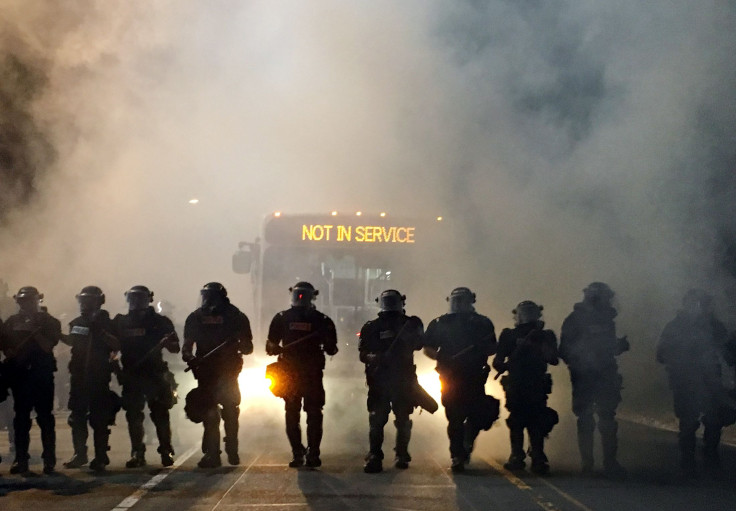Black Men Killed By Police 2016: Keith Lamont Scott Charlotte Shooting, Terence Crutcher Tulsa Death Under Scrutiny After Protests

In North Carolina, Charlotte residents woke up Wednesday morning to a city recovering from a night of protests that saw looting and near-rioting after police killed an armed black man. Keith Lamont Scott died after a confrontation with officers at an apartment complex.
Critics pointed to a growing trend of police resorting to lethal force when approaching black male suspects instead of attempting to deescalate a situation or using other nonlethal tactics. Scott's death came less than a week after another black man — who was unarmed — was shot and killed in Oklahoma as he waited for help near his disabled vehicle.
"Nobody claimed that he was a perfect individual," Melvin Hall, a lawyer representing the family of Terence Crutcher, who was killed Friday in Tulsa by a single police bullet, told the Associated Press. "Who is perfect? But that night he was not a criminal. He did not have any warrants. He had not done anything wrong. He had a malfunctioning vehicle, and he should have been treated accordingly."
Protesters in Charlotte Tuesday night claimed Scott was a victim of police brutality, but police say he was deemed a threat because he was seen "armed with a firearm" when officers arrived at the apartment complex to serve a warrant to a different person, NBC News reported. Some of the protesters reportedly looted a local Walmart and set items on fire, ABC News reported. At least 12 police officers were injured, including one who was hit in the head with a rock, and one person was arrested, Charlotte-Mecklenburg Police Chief Kerr Putney said Wednesday morning during a televised press conference.
After Scott got out of his car with a gun and got back in as officers moved in on him, "the man got back out of the vehicle armed with a firearm and posed an imminent deadly threat to the officers who subsequently fired their weapon striking the subject," Putney said Tuesday evening. The officer who shot Scott, Brentley Vinson, is black and was placed on administrative leave.
Charlotte officer who fatally shot armed man Keith Lamont Scott placed on administrative leave during investigation. https://t.co/1RbZ2xpXao
— ABC News (@ABC) September 21, 2016
"Hands up, don't shoot!"
— AJ+ (@ajplus) September 21, 2016
Protests erupted in Charlotte, NC, where #KeithLamontSmith was killed by police. pic.twitter.com/uSH0FtItWA
Crutcher's death was captured on video from at least two different angles. There are multiple apparent discrepancies in police accounts of the shooting, including whether Crutcher refused police commands to kneel and if he was on drugs when Tulsa Officer Betty Shelby, who is white, shot him, according to CNN. A voice could be heard on police radio saying "That looks like a bad dude."
Both Scott and Crutcher were shot with Taser guns before officers resorted to using actual firearms. The families of both men say lethal force was not justified. Users on social media have pointed to the recent arrests of Ahmad Rahami — the suspect in this weekend's bombings in New York City and New Jersey — and Dylann Roof — the apparent white supremacist accused of killing nine black parishioners execution-style last year in a South Carolina church — as evidence that police have the ability to take suspects into custody without killing them.
The NYC bomber gets taken alive but a Black man in full surrender gets gunned down&left to bleed. #TerenceCrutcher
— E (@simplyebad) September 19, 2016
https://t.co/tTuA6rJwCz
A bill was introduced in Congress this past summer to "authorize the Attorney General to make grants to State and local law enforcement agencies for research, training, and acquiring non-lethal force methods," but so far efforts to get it passed have stalled.
© Copyright IBTimes 2025. All rights reserved.






















